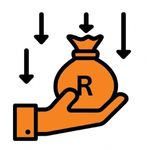
Across South Africa, growing numbers of individuals have chosen to use their retirement savings to settle outstanding debts, often as a way to manage financial hardship. The combination of rising living costs, high personal debt levels, and unstable income has left many households with limited options. Although retirement funds are intended to provide security in later life, they are increasingly being used to fill short-term financial gaps. This trend highlights the difficult balance between immediate relief and long-term stability, showing how economic pressures can push people to prioritise survival today at the expense of comfort in retirement.
Key Takeaways
- Rising Financial Pressures Are Forcing Early Withdrawals: Many South Africans are accessing their retirement savings to cope with inflation, high debt levels, and limited access to affordable credit. The growing cost of essentials such as food, fuel, and healthcare continues to strain household budgets, leaving little room for savings.
- The Two-Pot System Offers Flexibility but Increases Risk: The new two-pot retirement system allows limited pre-retirement access to funds, helping those in financial distress manage emergencies. However, using these funds too often can weaken long-term financial security and reduce the capital needed for a stable retirement.
- Responsible Financial Planning Is Crucial for Retirement Stability: Accessing retirement savings should be a last resort. South Africans are encouraged to seek debt management options, understand tax implications, and preserve their retirement investments to ensure future financial independence.
About Arcadia Finance
Arcadia Finance makes borrowing easy and reliable. Access offers from 19 top NCR-compliant lenders with no application fees. Experience a smooth process that helps you find the best deal for your financial situation.
Retirement Planning In South Africa
Retirement planning should ideally begin five years before your intended retirement date, giving you enough time to prepare financially and personally for this major transition. This period allows you to assess your current situation and make adjustments to ensure your retirement goals are realistic and achievable.
During these five years, several significant events could occur:
- You might lose your job through retrenchment.
- You could suffer a disability that prevents you from working.
- You may pass away unexpectedly.
It is crucial to make financial provisions for these possibilities to protect your retirement savings and ensure your dependants are secure. When preparing for retirement, you should consider several important factors:
- Determine how much money you and your dependants will need to cover living costs for the number of years you expect to be retired.
- Decide whether you want to leave a financial legacy for your family or beneficiaries.
- Assess your life cover to ensure it is sufficient to handle estate duties, ongoing living expenses, and the period before any pension or insurance benefits are paid to your dependants.
- Calculate your monthly retirement expenses and include an estimate for annual inflation. This helps determine how much income will be required to maintain your lifestyle.
- Take taxation into account, as tax on retirement benefits tends to increase over time.
- Diversify your income sources, ensuring you have some non-taxable income to supplement your pension.
- Maintain medical aid and short-term insurance, as healthcare and asset protection remain essential after retirement.
- Pay off your home loan before you retire to reduce monthly expenses.
- Continue saving even during retirement to preserve financial stability and account for unforeseen costs.
- Plan for personal goals and lifestyle choices, such as travel or hobbies, that you wish to pursue after retirement.
- Keep at least six months of expenses in accessible savings, such as a fixed deposit or unit trust, to handle emergencies.
- Avoid unreliable financial advisers and risky investment schemes that could jeopardise your savings.
Retirement planning involves many moving parts. If you are struggling with debt as retirement approaches, it is advisable to seek professional assistance immediately to avoid long-term financial strain.
When you eventually retire, you must understand the tax implications of accessing your pension funds. If your pension amount exceeds R1.5 million, you are entitled to take the first R500 000 tax-free. This is your only chance to withdraw a tax-free portion from your retirement savings. However, if your lump sum exceeds R3 million, it might be better to take R1 million in cash and pay 18% tax on the additional R500 000, depending on your circumstances. Always seek qualified financial advice to ensure you comply with tax requirements and make informed decisions.

Understanding The Two-Pot System In South Africa
Signed into law on 1 September under the Revenue Laws Amendment Bill, President Cyril Ramaphosa approved the introduction of the two-pot retirement system. This new approach restructures how South Africans manage their retirement contributions. It separates savings into two parts: an accessible pot, which allows limited withdrawals before retirement to handle urgent financial needs such as debts or emergencies, and a preserved pot, which remains protected until actual retirement to ensure long-term financial security.
While the system introduces greater flexibility, it also brings certain risks that require serious consideration. For those facing financial hardship, the accessible portion can provide much-needed relief. However, using these funds prematurely could reduce the capital intended to sustain one’s retirement years. The challenge lies in maintaining a balance between meeting short-term needs and protecting long-term stability. Effective planning and financial discipline are essential to avoid eroding the future value of retirement savings.
Short-Term Relief And Long-Term Impact Under The Two-Pot System
Having access to a portion of retirement savings can offer real advantages. It allows individuals to manage unexpected expenses without turning to high-interest loans or damaging their credit profiles. In some situations, this could prevent a financial crisis from escalating. Yet, frequent or poorly timed withdrawals may create habits that undermine future financial security. Relying too often on early withdrawals might lead to a cycle of dependency, making it difficult to rebuild retirement savings.
For instance, someone who uses their accessible pot to pay off high-interest debt might be tempted to borrow again when new costs arise. This pattern can cause retirement savings to shrink over time, leaving limited funds available for essential living costs or rising healthcare expenses later in life. As people live longer and medical needs become more costly, maintaining sufficient savings throughout retirement is becoming increasingly demanding. The two-pot system therefore requires individuals to use the accessible portion cautiously, ensuring that immediate relief does not come at the expense of future security.

Why South Africans Turn to Retirement Savings During Financial Strain
Many South Africans turn to their retirement funds when financial pressures become too heavy to manage. Inflation, debt, and unstable income have made it increasingly difficult for households to stay afloat, leaving retirement savings as one of the few accessible financial resources.

Rising Cost of Living and Inflation
The cost of living in South Africa has risen sharply in recent years, straining household budgets. Prices for food, fuel, transport and healthcare continue to climb, while wage growth remains limited. As purchasing power declines, families are forced to prioritise immediate expenses over long-term goals. Basic essentials now consume a larger share of income, often leaving little for savings or debt repayment. This situation drives many people to dip into retirement funds simply to cover daily living costs.

High Household Debt and Limited Access to Affordable Credit
South African households carry a high level of debt, with roughly 62.5 per cent of income going toward repayments. Rising living costs and restricted access to affordable credit make it hard to manage these obligations. When emergencies arise, many people cannot qualify for new loans or face interest rates that are too steep to afford. As a result, some use their retirement savings as an immediate but short-sighted way to relieve financial pressure.

Retrenchments and Income Instability After COVID
The lingering effects of the COVID-19 pandemic continue to shape financial behaviour. Retrenchments and job losses have reduced income stability across many industries, and employment recovery has been slow. For those who lost their jobs or experienced pay cuts, early access to retirement savings has served as a temporary safety net. However, ongoing uncertainty in the job market keeps many households vulnerable, reinforcing a cycle where short-term survival takes precedence over long-term financial security.
Understanding Borrowing Behaviour
Using retirement savings to settle debt should only be done when there is a clear and structured plan to improve your overall financial stability. It should be a deliberate step towards reducing long-term financial pressure rather than a temporary fix. Once your debts are settled, focus on how to make better use of the extra money now available to you. This could involve increasing your savings, building an emergency fund, or investing in income-generating assets.
However, using your retirement savings to clear debt while continuing to take on new debt suggests a recurring debt cycle. For instance, paying only the minimum instalment on a credit facility but then spending the newly available balance shows poor financial discipline. An even more concerning situation is when additional loans are taken simply to cover repayments on existing debt.
Unless your borrowing habits change, using retirement funds to settle debt will likely leave you in a weaker financial position. You would lose out on potential growth from your retirement savings while possibly falling deeper into debt, making long-term financial security harder to achieve.
What To Remember Before Accessing Your Retirement Savings
| Key Point | Description |
|---|---|
| Avoid Undermining Your Future Self | Only about 6% of employed South Africans can retire comfortably. Though the funds are yours, they are intended for use after you stop working. Accessing them early can leave you financially exposed later in life. Once retired, earning additional income becomes difficult, so preserving your retirement savings is vital for long-term security. |
| Early Access Comes With Tax Consequences | Withdrawing retirement savings early triggers tax liabilities. The withdrawal is taxed as income under South African law. If your income exceeds R7 979 per month, the withdrawal is taxed at your marginal rate. For example, someone earning R20 000 monthly could lose 26% of the withdrawal to tax. Always calculate the tax impact before accessing funds. |
| Withdrawing Early Reduces Compound Growth | Keeping funds invested allows compound interest to grow your savings over time. Early withdrawals disrupt this process, reducing your final retirement balance. Even small annual withdrawals can significantly lower your total savings, potentially costing hundreds of thousands of rand by retirement. |
| Retirement Age Is Generally Set At 60 | Most South African industries set the retirement age at 60. Employees are usually required to retire at that point. Without sufficient savings, you may need to find new employment, which can be difficult later in life given the limited job opportunities for older workers. |
| Explore Other Ways To Manage Debt | Before using retirement savings to pay off debt, explore other options such as debt counselling or consolidation. These can help you repay what you owe while protecting your long-term financial stability and keeping your retirement intact. |
| Seek Guidance From A Financial Professional | Decisions about retirement savings should be made carefully. An accredited financial adviser can help you weigh options, plan effectively, and create strategies that protect your future income while meeting present financial challenges. |
Conclusion
Using retirement savings to pay off debt has become increasingly common in South Africa, but it often comes at a long-term cost. While short-term relief may feel necessary, it can compromise financial security later in life. With inflation, rising living expenses, and ongoing job instability, many individuals face difficult choices about how to manage money. However, proper financial planning, responsible debt management, and seeking professional advice can help maintain a balance between addressing immediate needs and protecting retirement stability. By understanding the tax implications, the two-pot system, and alternative debt solutions, South Africans can make more informed decisions that safeguard their future income and independence.
Frequently Asked Questions
Many South Africans are turning to retirement savings because of rising living costs, high interest rates on credit, and limited access to affordable loans. For many households, withdrawing from pension funds is one of the few immediate ways to ease financial pressure.
The two-pot system divides retirement contributions into two parts. One portion, called the accessible pot, allows limited withdrawals before retirement to handle emergencies. The other, the preservation pot, remains locked until retirement to ensure long-term financial protection.
Early withdrawals reduce the amount available for retirement and stop your savings from benefiting from compound interest. In addition, withdrawals are taxed as income, which means a significant portion could go to SARS instead of your pocket.
Yes. South Africans struggling with debt can consider debt counselling, debt consolidation, or negotiating new repayment terms with creditors. These options can help manage debt without undermining retirement stability.
It is best to begin at least five years before your intended retirement date. This allows time to review your savings, pay off major debts, adjust your lifestyle goals, and ensure your retirement plan aligns with your long-term financial needs.
Fast, uncomplicated, and trustworthy loan comparisons
At Arcadia Finance, you can compare loan offers from multiple lenders with no obligation and free of charge. Get a clear overview of your options and choose the best deal for you.
Fill out our form today to easily compare interest rates from 19 banks and find the right loan for you.


